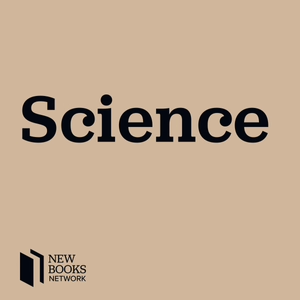
The Endocrine System
04/10/25 • 38 min
In this episode, we’ll cover crucial aspects such as hormones, their origins and mechanisms of action, and the various structures within the endocrine system. We'll also decode complex cell-to-cell communication and distinguish between different hormone types—peptide, protein, steroid, and lipid-derived.
Furthermore, we'll explore key endocrine disorders like diabetes and hyper- and hypogonadism, discussing their causes, symptoms, and relevance to the MCAT. In addition, we'll touch upon the functions and hormones of several glands, including the pituitary, thyroid, adrenal glands, and pancreas.
Visit MedSchoolCoach.com for more help with the MCAT.
Jump into the conversation:
00:00 Introduction to the MCAT Basics Podcast with host, Sam Smith
03:34 Exosomes act as information carriers for cells.
09:00 Large, charged substances dissolve in blood easily.
10:30 Protein kinase A activates multiple molecules quickly.
15:57 Podcast discusses prostaglandin, thromboxins, leukotrienes and glands.
18:22 Hormones explained: flat peg and pineal gland.
23:15 Endocrine diseases: hyperthyroidism, hypothyroidism, hyperinhypogonadism, diabetes.
26:33 Autoimmune disorder characterized by overactive thyroid production.
29:28 Hypothalamus role in hormone production and disorders.
34:01 Type 1 diabetes: Genetic and environmental factors.
35:47 Diagnosis and causes of type two diabetes.
39:18 Med School Coach elevates your application level.
In this episode, we’ll cover crucial aspects such as hormones, their origins and mechanisms of action, and the various structures within the endocrine system. We'll also decode complex cell-to-cell communication and distinguish between different hormone types—peptide, protein, steroid, and lipid-derived.
Furthermore, we'll explore key endocrine disorders like diabetes and hyper- and hypogonadism, discussing their causes, symptoms, and relevance to the MCAT. In addition, we'll touch upon the functions and hormones of several glands, including the pituitary, thyroid, adrenal glands, and pancreas.
Visit MedSchoolCoach.com for more help with the MCAT.
Jump into the conversation:
00:00 Introduction to the MCAT Basics Podcast with host, Sam Smith
03:34 Exosomes act as information carriers for cells.
09:00 Large, charged substances dissolve in blood easily.
10:30 Protein kinase A activates multiple molecules quickly.
15:57 Podcast discusses prostaglandin, thromboxins, leukotrienes and glands.
18:22 Hormones explained: flat peg and pineal gland.
23:15 Endocrine diseases: hyperthyroidism, hypothyroidism, hyperinhypogonadism, diabetes.
26:33 Autoimmune disorder characterized by overactive thyroid production.
29:28 Hypothalamus role in hormone production and disorders.
34:01 Type 1 diabetes: Genetic and environmental factors.
35:47 Diagnosis and causes of type two diabetes.
39:18 Med School Coach elevates your application level.
Previous Episode

The Digestive System
In this episode, we'll break down the intricate processes of nutrient digestion and absorption, from the mechanical and chemical digestion in the stomach to the vital role of the small and large intestines. We'll also discuss the regulatory mechanisms involving hormones and nervous innervation and the essential structures like the liver, gallbladder, and pancreas. And don't forget, this episode is packed with tips on everything you need to know about this high-yield topic for the MCAT.
So grab your notes, get comfortable, and let's embark on this fascinating journey through the digestive system. Stay tuned for a deep dive into how our bodies turn food into the vital nutrients we need to thrive.
Visit MedSchoolCoach.com for more help with the MCAT.
Jump into the conversation:
[00:00] Introduction to the MCAT Basics
[05:11] Digestive system involves mechanical and chemical processes.
[06:55] Food travels through digestive system over time.
[10:48] Small intestines: duodenum, jejunum, ileum, enterocytes crucial.
[14:38] Sphincters in digestive system control food movement.
[16:26] Podcast discusses physiology of digestive system structures.
[20:57] Salivary enzyme breaks down starch into glucose.
[23:46] Muscle contractions propel food through digestive system.
[27:40] Lipase enzyme breaks down fats in stomach.
[29:11] Stomach doesn't absorb nutrients, protects itself.
[32:55] Enzymes linked to cells for carbohydrate breakdown.
[38:05] Bile emulsifies fat, chylomicrons enter lymphatic system.
[41:35] Gut bacteria metabolize cellulose, form fatty acids.
[45:02] Living without large intestine; regulation of digestion.
[46:50] CCK stimulates pancreatic juice release, important digestion.
[49:57] Prepare for MCAT and excel with us!
Next Episode

Sleep and Circadian Rhythms
This episode is packed with essential high-yield information for your MCAT prep, covering the biological, physiological, and psychological aspects of sleep. We’ll explore various sleep theories, like the Memory Consolidation and Brain Plasicticity Theories, and even discuss the controversial “Sleeping When You Die” theory. We’ll also delve into dream theories, including Freud’s interpretations and the Activation Synthesys Hypothesis. Plus, we’ll address common sleep disorders such as insomnia, sleep apnea, and narcolepsy, alongside the effects of different drugs on your sleep patterns.
We’ll cover critical brain structures involved in sleep, such as the hypothalamus and the suprachiasmatic nucleus, and break down the stages of sleep measured through EEG, EMG, and EOG.
Visit MedSchoolCoach.com for more help with the MCAT.
[00:00] Introduction to the MCAT Basics podcast with host, Sam Smith
[04:05] Pineal gland, amygdala, basal forebrain in sleep.
[07:40] Measuring postsynaptic potential, not action potentials. EEG waves distinguish sleep stages. EMG records muscle electrical activity.
[10:46] Alpha waves awake, theta waves asleep. Hallucinations in stage N1 sleep.
[15:01] Unconfirmed sleepwalking. Stages of sleep explained.
[18:18] Sleep cycles lengthen REM stage, diagrams illustrate.
[19:50] We don't remember all our dreams.
[23:55] Shifting circadian rhythms due to changes in light.
[29:10] Blind people's melatonin release entrained with light.
[29:41] Cortisol secretion cycle follows a circadian rhythm.
[35:09] Freud: Dreams represent unconscious desires; manifest vs latent.
[38:53] Divorce dreams related to spouse thinking time. Broad sleep disorder categories: insomnia, breathing, hypersomnolence.
[41:18] Hypersomnia, narcolepsy, drugs' impact on sleep.
[44:14 Brief primer on drug effects on sleep.
If you like this episode you’ll love
Episode Comments
Generate a badge
Get a badge for your website that links back to this episode
<a href="https://goodpods.com/podcasts/mcat-basics-from-medschoolcoach-113962/the-endocrine-system-63638152"> <img src="https://storage.googleapis.com/goodpods-images-bucket/badges/generic-badge-1.svg" alt="listen to the endocrine system on goodpods" style="width: 225px" /> </a>
Copy




